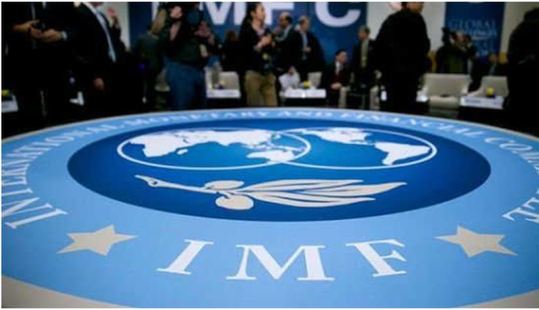

 |
On July 24, managing director of the International Monetary Fund (IMF) Christine Lagarde said the organization's headquarters could be moved to Beijing in 10 years if China and other major emerging economies continue to grow. Chinese experts think the relocation is likely for many reasons.
According to the IMF rules, the institution’s headquarters should be located within the territory of the largest economy among its member states. The organization’s headquarters has been based in the U.S. since its establishment in 1945. China has the third largest IMF quota and voting share after the U.S. and Japan.
The IMF managing director’s remarks about the possible relocation is a reminder to the U.S. that it should restrain some of its current policies, said Cao Heping, a professor at Peking University’s School of Economics.
Lagarde’s remarks also reflect her view of the global economy 10 years from now, said Song Guoyou, an international relations professor at Fudan University in Shanghai.
Cao said there is no way that Hong Kong will become the next location for the IMF headquarters, though its position as an international financial hub has been consolidated. “The prime period for Hong Kong’s development has passed, and it could take another two or three decades before the city rises again.”
Cao said compared with Hong Kong, Beijing and Shanghai are very likely to become candidate cities for the IMF headquarters. Beijing owns the best environment for financial and science and technology innovation, while Shanghai is located in the economic-lively Yangtze River Delta Region.
A country’s economic aggregate and supporting policies determine whether a city becomes an international financial hub or not, Song pointed out. In this regard, Beijing or Shanghai is likely to become an international financial hub.
Song also said that Chinese cities should further unleash their global influence to become global financial hubs.
 Fire brigade in Shanghai holds group wedding
Fire brigade in Shanghai holds group wedding Tourists enjoy ice sculptures in Datan Town, north China
Tourists enjoy ice sculptures in Datan Town, north China Sunset scenery of Dayan Pagoda in Xi'an
Sunset scenery of Dayan Pagoda in Xi'an Tourists have fun at scenic spot in Nanlong Town, NW China
Tourists have fun at scenic spot in Nanlong Town, NW China Harbin attracts tourists by making best use of ice in winter
Harbin attracts tourists by making best use of ice in winter In pics: FIS Alpine Ski Women's World Cup Slalom
In pics: FIS Alpine Ski Women's World Cup Slalom Black-necked cranes rest at reservoir in Lhunzhub County, Lhasa
Black-necked cranes rest at reservoir in Lhunzhub County, Lhasa China's FAST telescope will be available to foreign scientists in April
China's FAST telescope will be available to foreign scientists in April "She power" plays indispensable role in poverty alleviation
"She power" plays indispensable role in poverty alleviation Top 10 world news events of People's Daily in 2020
Top 10 world news events of People's Daily in 2020 Top 10 China news events of People's Daily in 2020
Top 10 China news events of People's Daily in 2020 Top 10 media buzzwords of 2020
Top 10 media buzzwords of 2020 Year-ender:10 major tourism stories of 2020
Year-ender:10 major tourism stories of 2020 No interference in Venezuelan issues
No interference in Venezuelan issues
 Biz prepares for trade spat
Biz prepares for trade spat
 Broadcasting Continent
Broadcasting Continent Australia wins Chinese CEOs as US loses
Australia wins Chinese CEOs as US loses